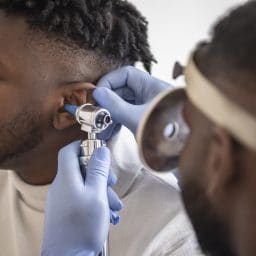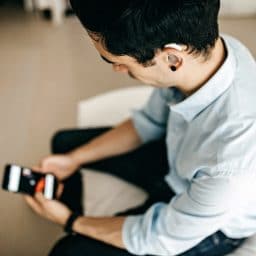What to Know Before Buying a Hearing Aid

In this day and age, you can purchase just about anything online and expect it to show up on your doorstep two days later. But as much as you may want to place an order for a hearing aid at b8ta, that’s not how it works. Hearing loss is a medical condition that requires treatment…
Enjoy Your Favorite Holiday Sounds with Hearing Aids

The holidays are right around the corner and there are so many things to do and enjoy. However, if you have hearing loss you might worry that it will cause you to miss out on some of your favorite parts of the holidays. Hearing aids can maximize your hearing and help to make sure you…
The Essentials for Hospital Stays with Hearing Loss

Medical issues that require hospitalization do come up, and it’s important to seek care as soon as possible if you believe it is needed. Even if necessary, staying in the hospital can already cause anxiety, and hearing loss can compound it. Hearing Loss and Hospital Care People with hearing loss are more likely to need…
How the Flu Affects Your Hearing

As miserable as the flu can leave you feeling, there’s a lesser-known side effect of it that is fairly common: temporary hearing loss. When you’re sick, fluid may build up in the middle ear and Eustachian tube, a thin canal in the back of the throat that connects the middle ear with the nasopharynx. This…
Enjoy the Harvest of a Life Well Heard

At SH Audiology, we’re committed to providing our patients with the best quality of care, as well as the latest information about living a life with healthy hearing. That’s why we’d like to let you know about a recent study conducted by the University of Maryland Department of Hearing and Speech Sciences that correlated hearing…
Can COVID-19 Worsen Tinnitus?

Roughly one in five Americans experience tinnitus, the perception of noise in the ears frequently compared to a ringing sound. Many factors contribute to tinnitus; now, we can add COVID-19, thanks to a recent study from Anglia Ruskin University in Cambridge, England. The study, which looked at 3,103 people with tinnitus from 48 countries, found…
What Is a Hearing Aid Fitting?

If you’ve recently gotten a hearing test revealing a loss of hearing that could be treated with hearing aids, the next step is to get a hearing aid fitting. Hearing aid fittings involve three steps: selecting the hearing aid, programming the hearing aid and adjusting the hearing aid. Selecting the Hearing Aid Your audiologist will…
Hearing Aids Can Help Your Mental and Cognitive Health

Hearing aids don’t just help you hear better, they help you lead a healthier, happier life. Research suggests that one of the many benefits of hearing aids is that they can help improve your mental and cognitive health. Benefits of Hearing Aids There are 48 million people throughout the country suffering from hearing loss. Living with untreated hearing…
6 Popular Styles of Hearing Aids

Hearing loss is common, affecting an estimated 48 million people across the nation. But despite how common it is, only about 20% of people who could benefit from hearing aids actually wears them. There are many styles of hearing aids on the market, so there’s no excuse: you can find a device that matches your…
Have You Considered Rechargeable Hearing Aids?

In trying to decide what hearing aids are best for you one option you might consider is rechargeable hearing aids. Like the name suggests, rechargeable hearing aids utilize rechargeable batteries instead of standard disposable batteries. In this post we will discuss the benefits and limitations of rechargeable hearing aids to help you decide if they…
